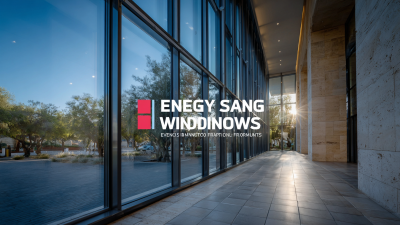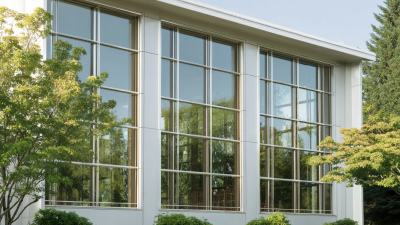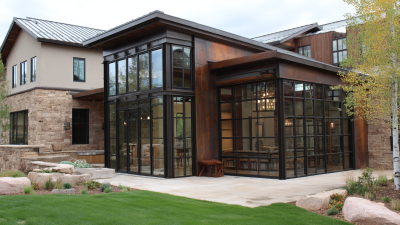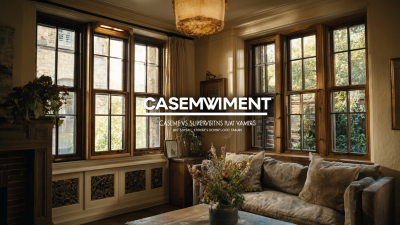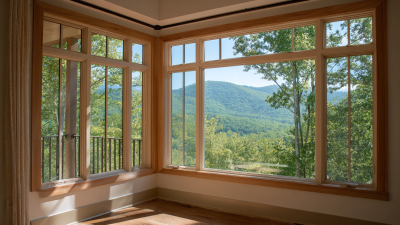As homeowners increasingly seek ways to enhance energy efficiency and reduce utility costs, the importance of upgrading to energy-efficient residential windows cannot be overstated. According to the U.S. Department of Energy, nearly 30% of a home's heating and cooling energy usage is lost through inefficient windows. This statistic underscores the urgent need for homeowners to consider energy-efficient options that not only mitigate energy loss but also improve indoor comfort.
 Industry expert Dr. Emily Hartman, a leading researcher in the field of energy-efficient residential construction, emphasizes, "Investing in energy-efficient residential windows is one of the most impactful decisions a homeowner can make. It not only lowers energy bills significantly but also increases the property value and enhances overall sustainability." With advancements in technology, today's energy-efficient windows can provide superior thermal insulation and UV protection, making them an essential upgrade for modern homes.
Industry expert Dr. Emily Hartman, a leading researcher in the field of energy-efficient residential construction, emphasizes, "Investing in energy-efficient residential windows is one of the most impactful decisions a homeowner can make. It not only lowers energy bills significantly but also increases the property value and enhances overall sustainability." With advancements in technology, today's energy-efficient windows can provide superior thermal insulation and UV protection, making them an essential upgrade for modern homes.
Furthermore, the potential benefits extend beyond mere cost savings. A 2023 report from the National Fenestration Rating Council highlighted that homes equipped with high-performance residential windows can save an average of 15% on heating and cooling costs annually. This aligns with a growing trend among environmentally-conscious homeowners who are looking to make seamless improvements that deliver both financial and ecological dividends.
When considering upgrading to energy-efficient residential windows, it's essential to understand the key features that define modern designs. Today's energy-efficient windows typically boast double or triple-pane glass, effectively reducing heat transfer and enhancing insulation. Additionally, these windows often include low-emissivity (Low-E) coatings, which reflect heat while allowing natural light to enter, ensuring your home stays warm in winter and cool in summer.
**Tip:** When selecting new windows, look for models that are ENERGY STAR certified, as they meet strict energy efficiency guidelines and can significantly reduce your utility bills.
Another critical feature to consider is the window frame material. Materials like vinyl, fiberglass, and wood composites offer excellent thermal performance and durability. These frames often feature insulating properties that minimize energy loss. Furthermore, advanced window spacers help maintain seal integrity over time, preventing condensation and contributing to better energy efficiency.
**Tip:** Always inquire about the U-value and Solar Heat Gain Coefficient (SHGC) ratings of the windows you’re considering. These metrics will help you understand how well the window prevents heat transfer and how much solar heat is admitted, allowing you to make a more informed decision.

Upgrading to energy-efficient residential windows can significantly lower energy bills for homeowners, making it a wise investment. These windows are designed with advanced technologies such as low-emissivity (Low-E) coatings that reflect heat in the summer and retain it during the winter. This means that homes maintain a more consistent temperature year-round, reducing reliance on heating and cooling systems. As a result, homeowners can expect lower utility costs, as their HVAC systems won't have to work as hard to keep the indoor environment comfortable.
In addition to immediate savings on energy bills, energy-efficient windows can also offer long-term financial benefits. By preventing drafts and minimizing heat loss, these windows help increase energy efficiency, which can lead to substantial savings over time. Many utility companies even provide rebates for upgrading to energy-efficient options, further enhancing the financial return on investment. With rising energy costs, making the switch to energy-efficient windows not only contributes to a more sustainable lifestyle but also protects homeowners' wallets from fluctuating energy prices.
This chart illustrates the estimated annual energy savings (in USD) for homeowners who upgrade to energy-efficient windows compared to standard windows. The data highlights the financial benefits across different climate zones.
Upgrading to energy-efficient residential windows is a significant step for homeowners looking to enhance indoor comfort while maintaining optimal temperatures throughout the year. With rising global temperatures, traditional cooling methods may no longer suffice, necessitating smarter solutions. Energy-efficient windows minimize heat transfer, helping to keep homes cooler in the summer and warmer in the winter, thus significantly reducing reliance on air conditioning and heating systems. This energy efficiency not only translates to lower utility bills but also contributes to decreasing the overall energy demands of buildings, which have escalated over the years.
Tips: To maximize the benefits of your new windows, consider pairing them with energy-efficient ceiling fans. These fans can circulate air effectively, providing a cooling effect without the high costs associated with air conditioning. Additionally, be mindful of window treatments; using shades or curtains can further insulate your home, maintaining comfortable temperatures year-round. Lastly, ensure proper installation and sealing of windows to prevent drafts and maintain energy efficiency.
By investing in energy-efficient windows, homeowners can create a more enjoyable living environment while contributing to a sustainable future, responding to the urgent need for energy conservation in today's climate-aware society.
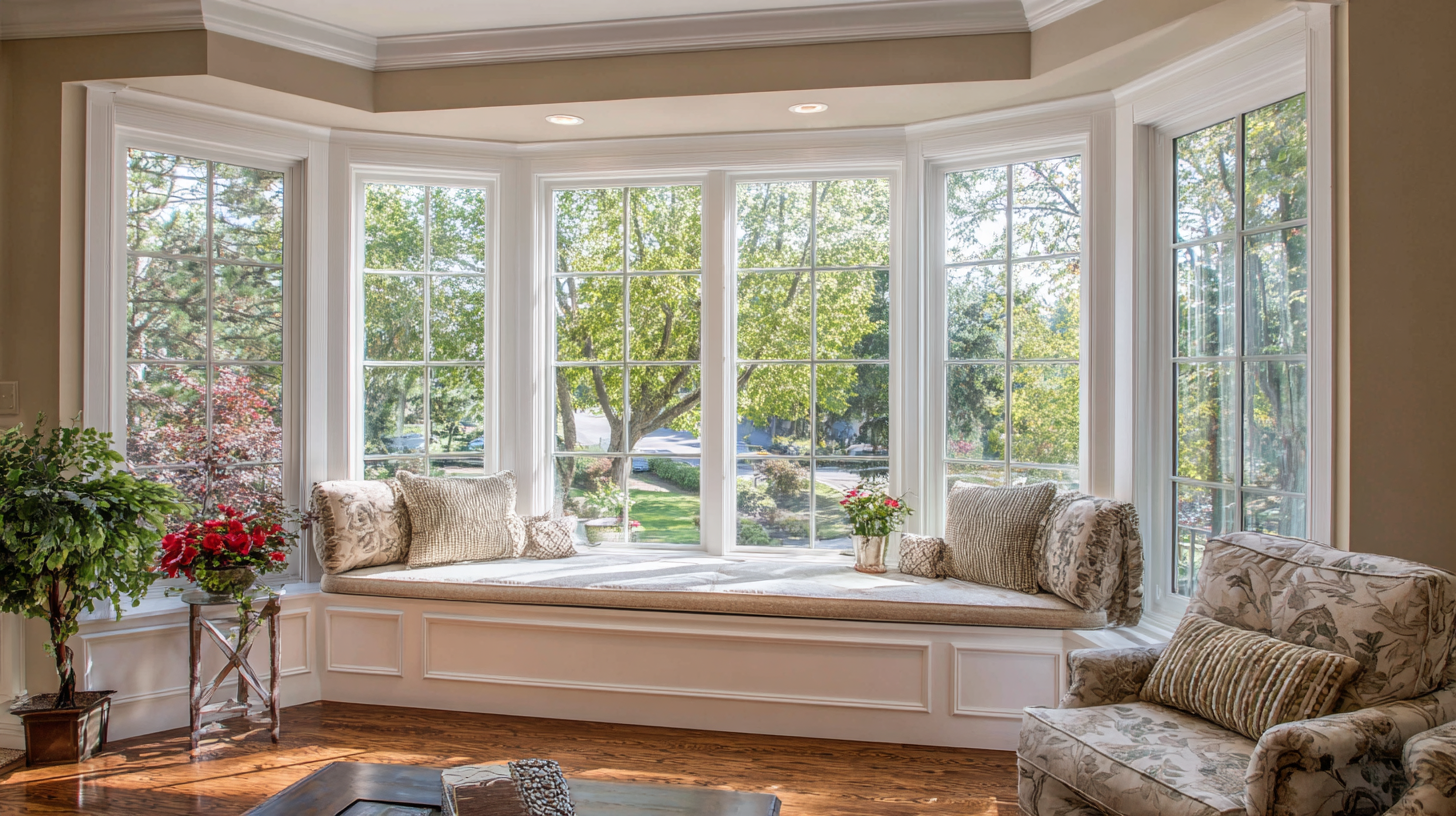
Upgrading to energy-efficient residential windows is not just about immediate savings; it represents a significant long-term investment in a homeowner's property value. One of the primary advantages of new windows is their ability to enhance a home's aesthetic appeal, making it more attractive to potential buyers. When prospective homeowners see modern, energy-efficient windows, they perceive the property as being well-maintained and up-to-date with the latest energy standards. This perception can lead to higher sale prices and quicker sales in a competitive market.
Furthermore, energy-efficient windows contribute to lower energy bills, which is a compelling selling point for future buyers. These windows minimize heat loss in winter and keep homes cooler in summer, directly impacting utility costs. Over time, the savings accumulated from reduced energy bills can significantly offset the initial costs of installation. Additionally, homes equipped with energy-efficient windows may qualify for tax credits or rebates, further enhancing their value. Thus, investing in high-quality windows not only improves immediate living conditions but also secures a more substantial return on investment when it's time to sell.
Upgrading to energy-efficient residential windows is not just a smart choice for homeowners; it also plays a vital role in contributing to sustainability. Traditional windows often allow significant heat transfer, leading to increased energy consumption for heating and cooling. By choosing energy-efficient options, homeowners can minimize their carbon footprint, significantly reducing the demand on energy resources. This shift not only helps in conserving energy but also curtails greenhouse gas emissions, making a positive impact on the environment.
Moreover, energy-efficient windows often incorporate materials and manufacturing processes that are less harmful to the ecosystem. By investing in these products, homeowners support innovation in sustainable building practices and encourage manufacturers to prioritize eco-friendly materials. Over time, as more individuals make the switch to energy-efficient windows, the collective impact can foster a culture of sustainability, leading to healthier communities and a more resilient planet. This not only benefits current generations but ensures that future generations inherit a cleaner, more sustainable environment.
